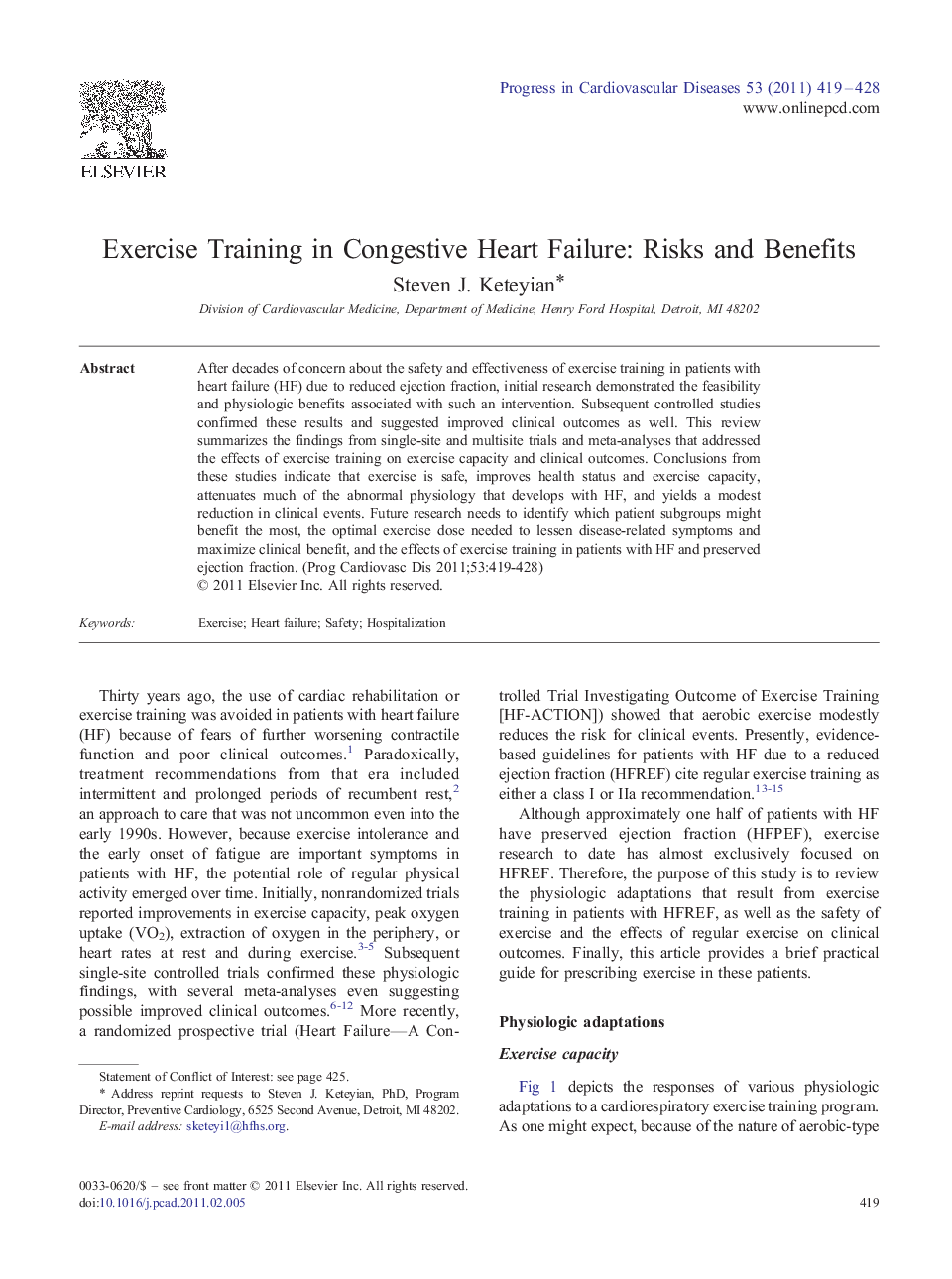| Article ID | Journal | Published Year | Pages | File Type |
|---|---|---|---|---|
| 3006514 | Progress in Cardiovascular Diseases | 2011 | 10 Pages |
After decades of concern about the safety and effectiveness of exercise training in patients with heart failure (HF) due to reduced ejection fraction, initial research demonstrated the feasibility and physiologic benefits associated with such an intervention. Subsequent controlled studies confirmed these results and suggested improved clinical outcomes as well. This review summarizes the findings from single-site and multisite trials and meta-analyses that addressed the effects of exercise training on exercise capacity and clinical outcomes. Conclusions from these studies indicate that exercise is safe, improves health status and exercise capacity, attenuates much of the abnormal physiology that develops with HF, and yields a modest reduction in clinical events. Future research needs to identify which patient subgroups might benefit the most, the optimal exercise dose needed to lessen disease-related symptoms and maximize clinical benefit, and the effects of exercise training in patients with HF and preserved ejection fraction.
